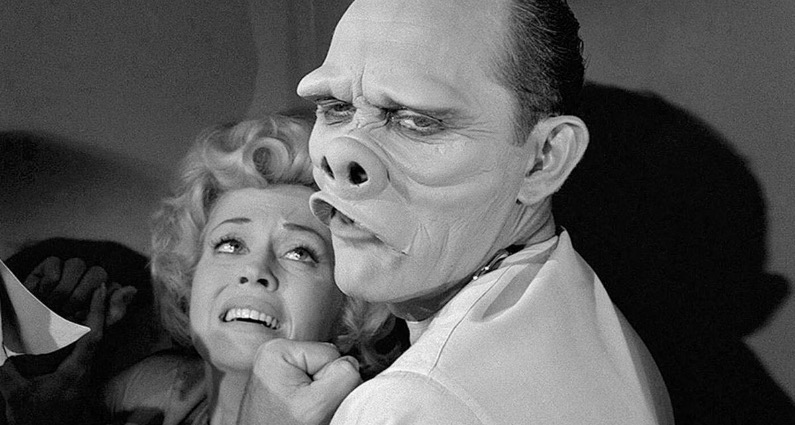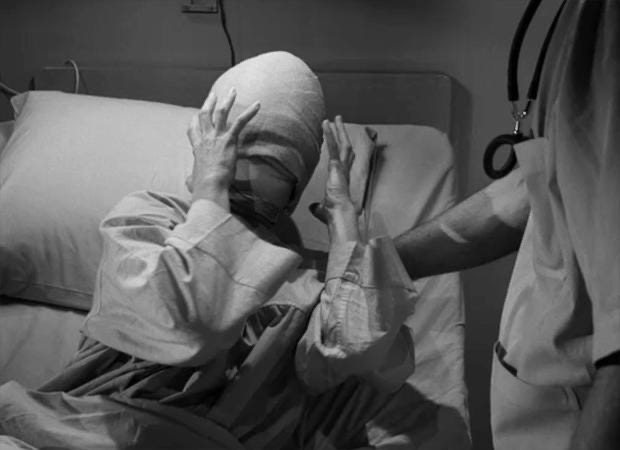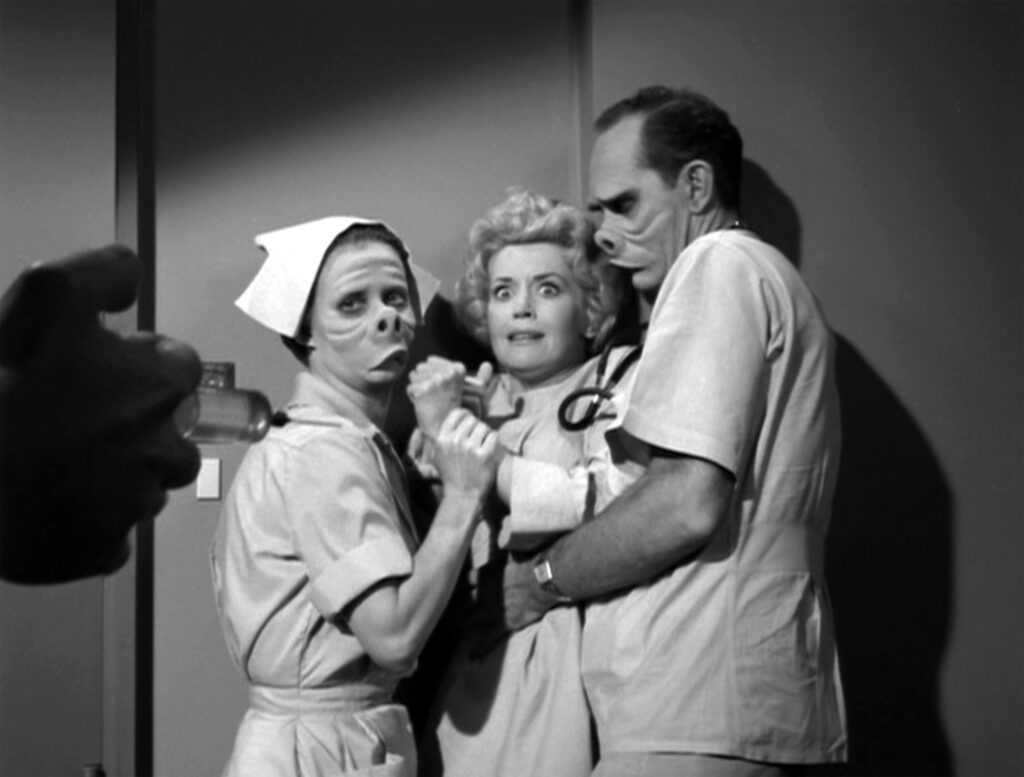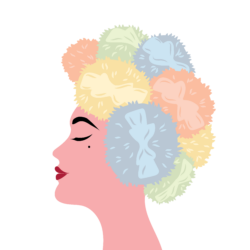In the Twilight Zone episode “Eye of the Beholder,” the message is clear: beauty is not universal; it is defined by the society we live in. The protagonist, Janet Tyler, is desperate to fit in, undergoing her 11th surgery to “correct” her appearance and finally conform to societal ideals. When the bandages are removed, we see that her face—one we’d find beautiful by our standards—looks “normal” to us but is considered grotesque in her world. Meanwhile, the doctors and nurses, who possess what we might view as distorted features, are considered the epitome of beauty in this dystopia.

The unsettling brilliance of the episode lies in how it forces us to confront our own perceptions of beauty. Just as in Janet Tyler’s world, where the majority dictates what’s acceptable, we too are constantly influenced by societal standards—standards that fluctuate over time, across cultures, and even within our own lives.
This ties directly into makeup. Often, people turn to makeup as a means of masking perceived flaws, trying to “correct” themselves according to prevailing beauty trends. The more we look outward for approval, the more makeup becomes less about self-expression and more about conformity. Much like Janet’s surgeries, applying makeup can sometimes feel like an attempt to fit into someone else’s vision of beauty, whether that’s through heavy contouring, perfect brows, or a flawless complexion.


However, makeup also holds the power to liberate us from those very standards. It can be a medium for self-exploration, allowing us to accentuate our individuality rather than cover it up. Whether it’s a bold red lip or a barely-there look, makeup is subjective—it’s in the eye of the wearer. And just as Eye of the Beholder challenges the notion of beauty as a fixed concept, makeup encourages us to redefine beauty on our own terms, embracing what makes us unique.
A Deeper Reflection:
How often do we, like Janet Tyler, find ourselves trying to meet someone else’s definition of beauty? Are we using makeup to enhance what makes us feel like our true selves, or are we hiding behind it, hoping to be “fixed” in the eyes of others? The power of makeup lies in the intention behind it—when we stop chasing an ideal and start using it as a tool for personal expression, we reclaim our individuality.
